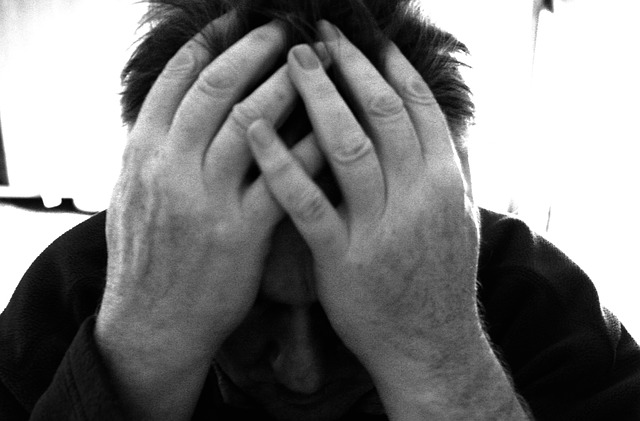Treatment
A “cough” headache is a common symptom of certain medical conditions due to muscle or body strain. There are two known types: Primary and Secondary cough headaches. It’s important to distinguish between them to find out what sort of products and services you may need to address, if you suffer from cough headaches.
Cough Headaches: What They Are, Why They Happen
As mentioned, cough headaches are caused by bodily strain – the most common of which is coughing. However, actions such as sneezing, blowing your nose, laughing, or crying loudly, singing, bending over, and even having a bowel movement can cause a cough headache. Cough headaches usually affect men over 40.
Most kinds of cough headaches are harmless, and are believed to be caused by increased internal pressure in the head from the aforementioned kinds of strain, particularly to the venous system surrounding the brain. It is also suspected that narrowing of the veins in the neck or sinuses are causes for cough headaches.
This kind of intracranial pressure can even be emphasized by the Valsalva’s maneuver, which is done by closing the mouth, pinching the nose, and breathing out. The maneuver is usually done to equalize pressure in the ear, but too much pressure can initiate a cough headache.
Some cough headaches, however, may be caused by a medical condition related to the following:
• Defects in the shape of the patient’s skull, or a defect in the cerebellum, where a part of the brain is forced out of the opening at the base of the skull (sometimes called Chiari Malformations)
• A dangerous weakness in one of the brain’s blood vessels (a possible warning for cerebral aneurysm
• In rare cases, a brain tumor
What Triggers Cough Headaches?
Although it’s been mentioned before, here is the formal list of activities that are causes and triggers for cough headaches.
• Coughing or sneezing
• Laughing or crying
• Blowing the nose or holding one’s breath
• Singing or fast head movements
• Bending over
• Bowel movements
What are the Symptoms?
There are two sets of symptoms, depending on the medical condition involved with a cough headache.
The first set of symptoms includes:
• A sudden pain starts just after coughing or straining.
• The headache lasts anywhere from a few seconds to 30 minutes.
• It is usually a sharp, stabbing pain in the head area.
• It usually affects both sides of the head, and can be worse at the back part of the head.
• A dull, aching pain can be the secondary wave, and this can last for the next several hours.
The second set of symptoms usually follows the first set, and should you have these, you should go to a doctor who specializes as a pain management advisor, or has knowledge of how to deal with Cough headaches.
• The headache itself may last longer than thirty minutes.
• Dizziness is part of the headache attack.
• Your body responds with general unsteadiness while the headache is happening.
• Fainting can follow a cough headache spell. If this does happen, do go to a doctor or medical facility immediately.
When to see a doctor
Cough headaches can happen even to the healthiest people, and if it happens intermittently or sparingly, what you should do is mention it to your physician or attending doctor for your general health. It’s possible that with an improved and healthier lifestyle, your cough headaches will disappear.
However, if the headaches are happening with alarming frequency, then you should seek advice immediately from a qualified doctor, as this may be symptomatic of an underlying medical condition. Disturbing symptoms, such as imbalance, blurred vision, or double vision should be taken seriously.
The Types of Cough Headaches
Depending on the set of symptoms, doctors have divided cough headaches into the following types:
Primary Cough Headache
These types of cough headaches are usually harmless, and can occur in limited episodes, gradually improving until they disappear.
Secondary Cough Headache
This kind of headache is just a symptom of an underlying condition, and can be very dangerous if ignored or self-treated. The presiding doctor usually must do a range of tests to determine if a cough headache isn’t an indicator of a serious medical condition.
A full examination should always be done to rule all other medical possibilities out, based on the patient’s current health information.
Cough Headache Risks
Given that cough headaches are already possible symptoms of more serious diseases or medical conditions, Even if they seem innocuous, or considered as “signs of aging,” you shouldn’t rule them out until you have had yourself thoroughly checked.
The following are risk factors for cough headaches:
For primary cough headaches:
• 40 years of age, or older
• Male
For secondary cough headaches:
• Below 40 years of age
• Male
How Do You Treat a Cough Headache?
Prevention
To prevent primary cough headaches, you should do the following:
• Treat lung infections immediately, to avoid prolonged times when coughing happens.
• Avoid medications that can trigger coughing fits.
• Address digestion issues to lessen constipation.
• Minimize heavy lifting or bending; you can address this through more exercise, or learning proper ways to move your body to minimize strain.
Examination
If your doctor thinks that you may have a more serious condition, you may have to undergo a Magnetic Resonance Imaging (MRI) scan of your brain, to create cross-sectional images of your head for your doctor to study. If anything unusual turns up, your doctor will then be able to diagnose your medical condition correctly, and give you the appropriate preventive plan. Alternatively, if nothing seems wrong, you can be referred to a pain management advisor, so you can at least minimize your cough headache.
There are three ways to treat cough headaches immediately:
• You can follow your doctor or pain management advisor’s diagnosis and medical advice to prevent or minimize the causes and triggers for your headache attacks. Given time, your cough headaches may go away or at least become very manageable when they do happen.
• For more serious situations, you may be given anti-inflammatory drugs, diuretics, or blood vessel and blood pressure relaxants. These all address the idea that your cough headache may be due to intracranial pressure.
• Finally, the safest and most harmless way to address the headache itself (if there are no underlying medical conditions or if your doctor allows you to use these in conjunction with other medicines taken) is to have a prescription drug or pill that can help you manage the pain from your cough headaches.











